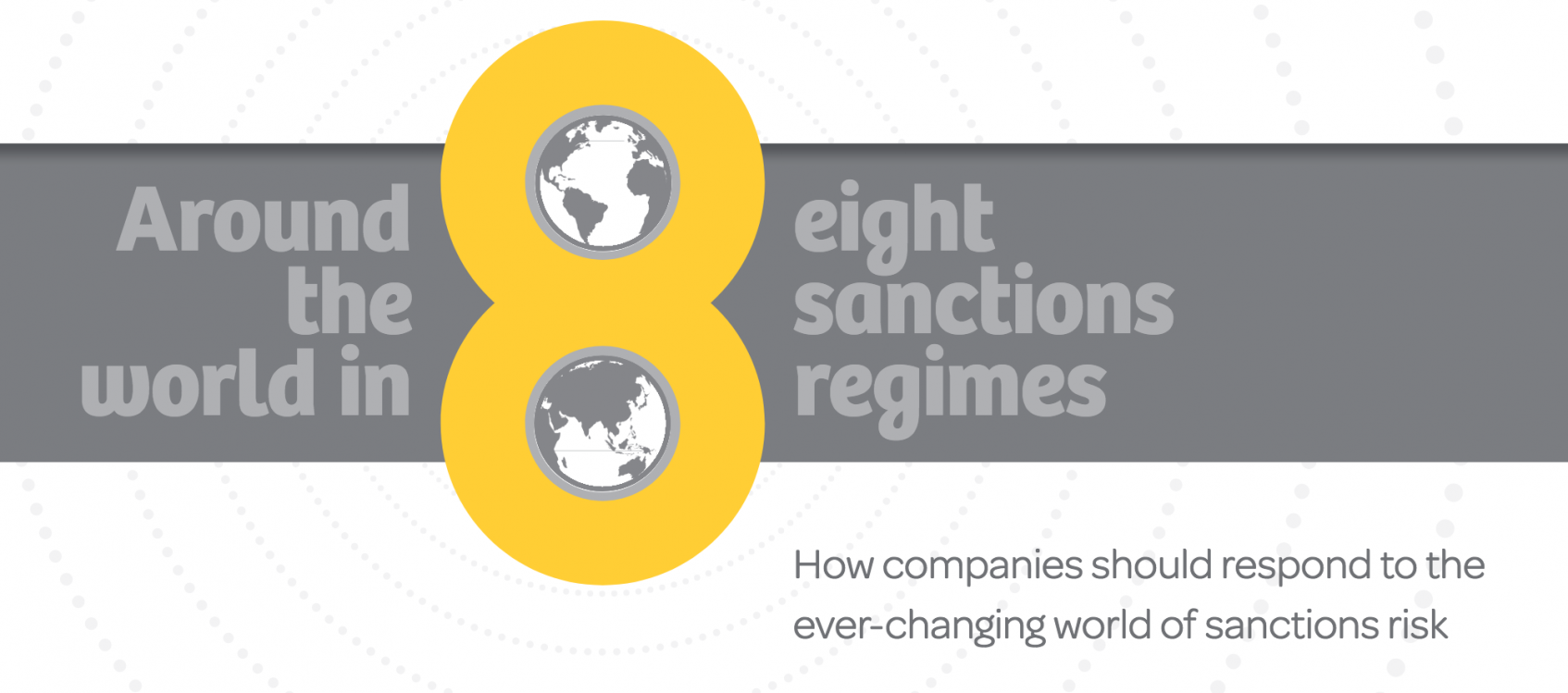
How companies should respond to the ever-changing world of sanctions risk
Around the world in eight sanctions regimes
Sanctions are imposed on regimes, entities or individuals by governmental and intergovernmental bodies, in the hope of curbing or changing their behaviour. They come in many forms, including asset freezes, flight bans, and restrictions on trade and other financial transactions. These bodies regularly publish and update their sanctions lists, which presents a significant risk of an unintentional breach to companies of all sectors that trade internationally. If a firm breaches sanctions, it can expect to face serious legal, financial and reputational repercussions. Punishments can include a civil or criminal legal conviction, a large regulatory fine, or a ban on bidding for future national or World Bank contracts.n the last few months alone, sanctions around the world have changed significantly. To measure the current extent of these changes, LexisNexis Business Insight Solutions has compiled this report with the latest information on sanctions regimes at governmental and intergovernmental level. The report focuses on how sanctions have changed in eight countries: the US, UK, Russia, Iran, Myanmar, Cuba, Democratic People’s Republic of Korea (North Korea), and the Democratic Republic of Congo (DRC). The report goes onto look at the steps companies can consider to mitigate the risks of breaching sanctions.



